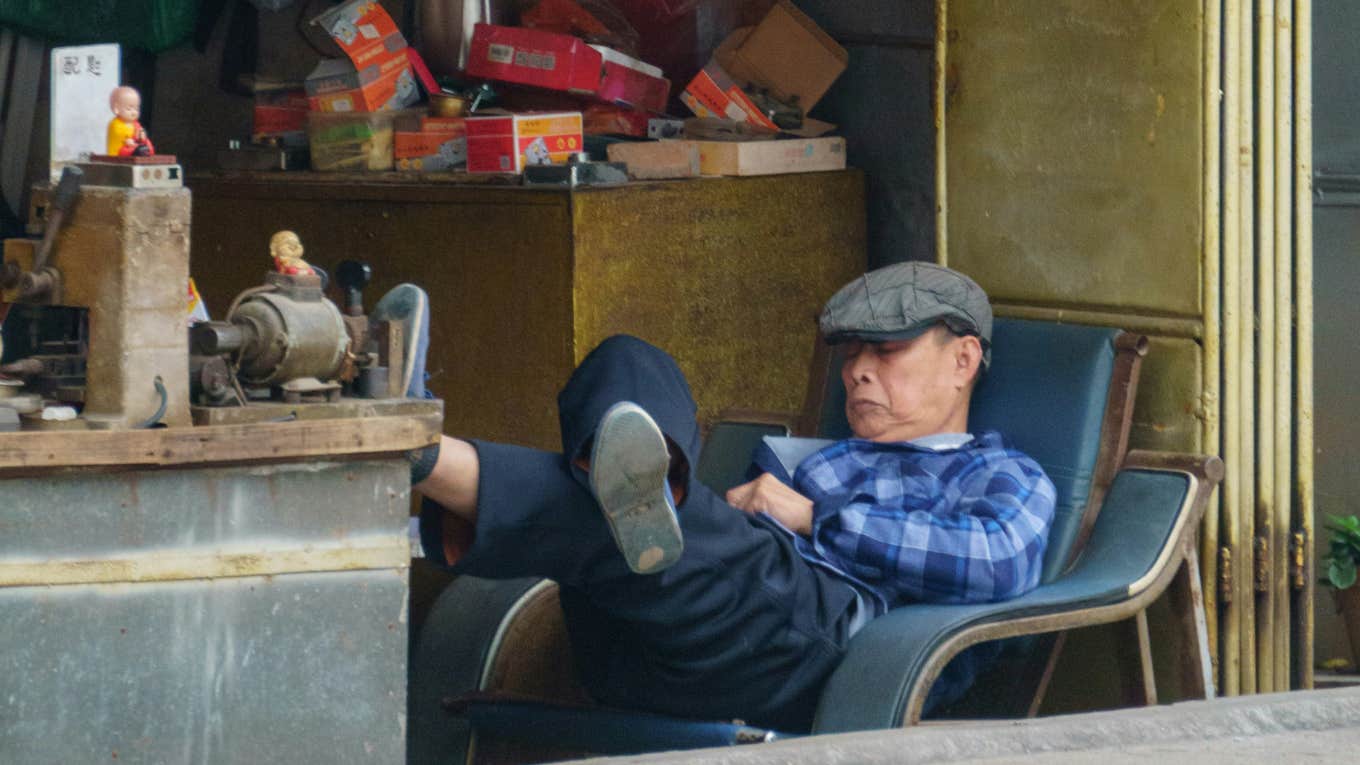Welcome To Shanxi, A Chinese City Where Everything Shuts Down At Noon Every Day So People Can Nap
If you love a good nap, it might be time to relocate.
 Shawn Rain | Unsplash
Shawn Rain | Unsplash In North China, to the west of Beijing, lies a province where everything goes quiet every afternoon. The quiet isn’t a sign that you’ve stepped into some kind of strange horror movie. Instead, it’s a sign of one of the most comforting things in the world: nap time. According to Facebook user It’s IVAN, Shanxi, China has been nicknamed the “Sleeping Province” because pretty much everyone nods off between 12:00 and 2:00 p.m.
For people who are used to a life filled with hustle and bustle, Shanxi might come off as a little unnerving. You see, it’s not like everyone just goes home to nap for two hours a day. Rather, people just pause to rest where they are. Students and white-collar workers are allowed to take naps in schools and offices. And, for people who work in shops, they can regularly be seen snoozing right next to their wares.
Shanxi's afternoon naps are a tradition with deep roots in ancient Chinese medical wisdom.
In his post, It’s IVAN explained that Shanxi follows a tradition known as wǔjiào, or “midday nap.” While Shanxi may be unique in the way that it almost completely shuts down, with more than 60% of its residents opting to nap daily, this is wisdom that is well-known throughout Chinese culture.
A TikToker known as @yourtcmguide covers all things traditional Chinese medicine (TCM). He explained some of the reasoning behind stopping for this afternoon rest. “In traditional Chinese medicine, your body runs on an organ clock,” he said. “From 11:00 a.m. to 1:00 p.m., your heart is at peak activity. Then, from 1:00 to 3:00 p.m., it switches to your small intestine. That’s when your body needs the most energy for digestion and nutrient absorption.”
“Taking even a short nap helps your body break down food and turn it into fuel,” he continued. “If you overwork during this time, you actually steal energy from your organs. That can weaken your spleen, cause bloating, fatigue, and what TCM calls dampness — basically feeling heavy and sluggish.”
For those of you who may be skeptical about believing ancient medicine practices, modern science backs it up.
In the Western world, we’re not used to taking ancient medical advice at face value. However, a study published in the Journal of the American Geriatrics Society proved that there are benefits to taking a nap in the afternoon.
The study used data from the China Health and Retirement Longitudinal Study, which collects information about Chinese residents 45 and older.
The Chinese population is aging rapidly, with 200 million people aged 60 and over currently, a statistic that is expected to increase to 400 million by 2050. Researchers wanted to find out if there was any link between these older citizens napping at midday and improved cognitive functioning.
Their conclusion? “The results support the hypothesis that a moderate-duration nap taken during the postlunch dip is associated with better overall cognition.”
One American shared her own experience with China’s afternoon nap tradition.
Juliana Batista is from the United States but spent some time working in China. She called rituals like afternoon napping “strangely fascinating.” Her office took a break every day from 1:00 to 1:30 for napping, although she admitted to often using that time to brush up on her Chinese language skills instead of sleeping.
 Kha Ruxury | Pexels
Kha Ruxury | Pexels
She shared another reason this tradition had taken hold in China. “When the majority of workers were toiling in the fields, mid-afternoon sun rays were the hottest and prompted laborers to take a nap,” she explained. “This has stuck as a daily ritual since, even though the majority of workers now [choose] the cubicle or factory floor over the fields.”
Living in the U.S., it’s hard to imagine taking a break like this in the middle of the day to rest. But it seems like the Chinese are definitely onto something, especially in Shanxi. Maybe we could all benefit from taking time to pause in the afternoon, whether that means taking a nap or simply reflecting.
Mary-Faith Martinez is a writer with a bachelor’s degree in English and Journalism who covers news, psychology, lifestyle, and human interest topics.

